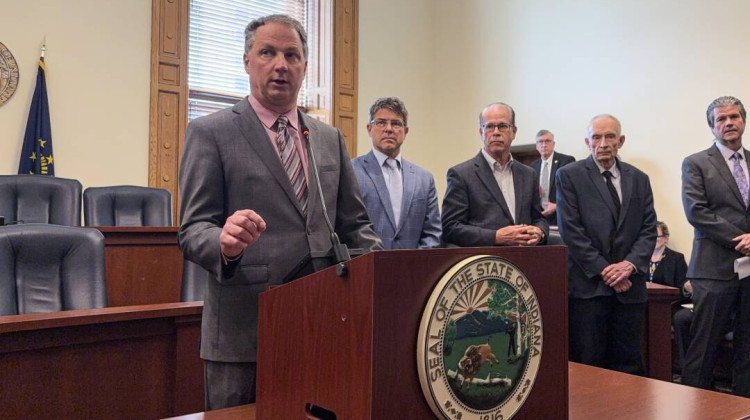Indiana voter advocacy groups are creating what they’re calling a “shadow” redistricting commission to give Hoosiers an independent contrast when lawmakers redraw legislative district lines next year.
Groups like Common Cause Indiana have long called for an independent redistricting commission to draw Indiana’s legislative maps. Taking it out of the hands of lawmakers, they say, will result in fairer, more competitive districts.
Senate President Pro Tem Rodric Bray (R-Martinsville) – whose Republican caucus has long opposed such a commission – said a truly independent body would be difficult, if not impossible, to put together.
“You can say it's a nonpartisan board that you would appoint. But everybody comes to the poll or any position with some political interest," Bray said. "And the people that are going to appoint that nonpartisan person are probably going to have an interest in what that person's philosophy is either, whether it's publicly known or not.”
But Common Cause Indiana director Julia Vaughn said that’s exactly what this shadow commission hopes to dispel. She said the group will include Republicans, Democrats and people who don’t belong to either party.
The shadow commission has no actual power. It serves as a public alternative to whatever maps lawmakers draw in 2021.
Contact reporter Brandon at bsmith@ipbs.org or follow him on Twitter at @brandonjsmith5.
 DONATE
DONATE







 Support WFYI. We can't do it without you.
Support WFYI. We can't do it without you.